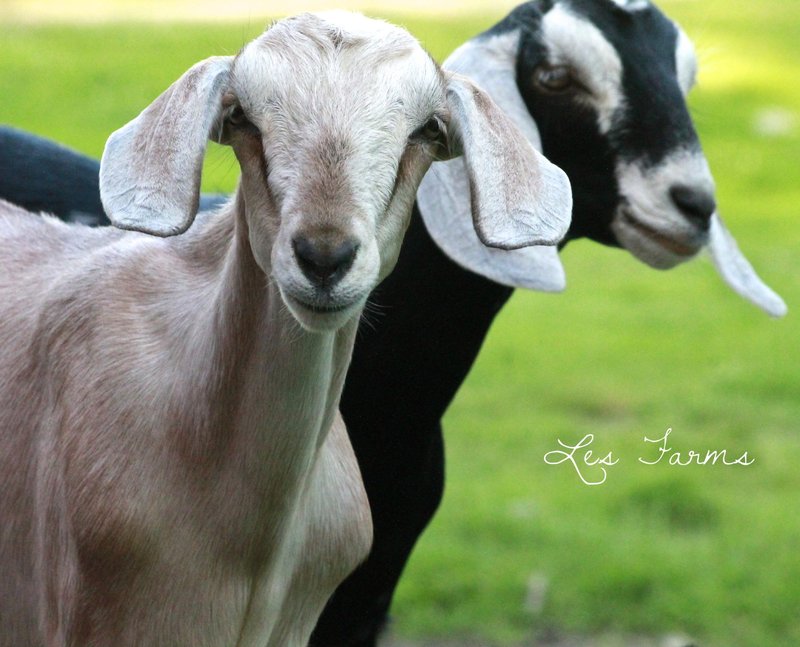
Nubian goats are known for their friendly demeanor and adaptability. However, they aren’t invincible. Just like us, they can be prone to certain ailments, both minor and serious. This doesn’t mean you should panic; instead, it’s about being alert and proactive. After all, a happy goat is a healthy goat! So, let’s explore some of the common health problems you might encounter with Nubian goats and, more importantly, how to prevent them.
1. Parasites: The Sneaky Villains
Parasites are like tiny invaders that can wreak havoc on your Nubian goat’s health. The most common culprits include worms, ticks, and mites. These pests can lead to weight loss, lethargy, and even more severe health complications if left unchecked. Imagine how uncomfortable it would be to share your space with unwelcome guests that hog all the resources!
To help prevent these pesky parasites, consider implementing a regular deworming schedule. Most veterinarians recommend deworming every three to six months, depending on the goat’s environment and lifestyle. Additionally, maintaining a clean living area will go a long way. Regularly clean bedding and provide plenty of fresh water, as this can help reduce the chances of your goats picking up these unwanted hitchhikers.
Here’s a quick checklist for parasite prevention:
- Regular deworming
- Keep living areas clean
- Rotate grazing areas
- Monitor for signs of parasite infestation (like weight loss and poor coat condition)
2. Nutritional Deficiencies: Keeping the Diet Balanced
Just like humans, Nubian goats require a balanced diet to stay healthy. If they’re lacking essential nutrients, it can lead to various health issues. For example, deficiencies in calcium can cause problems like milk fever, while a lack of Vitamin E and selenium can lead to white muscle disease.
To ensure your goats are getting everything they need, provide a diet rich in hay, grains, and minerals. Think of it like meal prep for your furry friends! You can also consider mineral blocks designed specifically for goats to help fill in any gaps.
Here are the key nutrients you should focus on:
- Protein: Helps with growth and milk production
- Calcium: Vital for bone health, especially in lactating females
- Vitamin E and Selenium: Important for muscle health and immune function
Remember to always introduce new foods gradually to avoid digestive upset. If you’re unsure about their diet, consulting with a veterinarian or a goat nutritionist can provide tailored advice.
3. Respiratory Issues: Breathing Easy
Respiratory problems are another common concern for Nubian goats. Factors like poor ventilation in their barn, exposure to moldy hay, or extreme weather can contribute to these issues. If your goats are coughing, producing nasal discharge, or having difficulty breathing, it’s crucial to address these symptoms quickly.
To prevent respiratory issues, ensure proper ventilation in your goat barn. This means allowing for fresh air circulation while keeping drafts out. Also, avoid feeding moldy hay, as it can cause serious respiratory distress.
Here’s how to promote healthy breathing for your goats:
- Keep their living space clean and dry
- Provide plenty of fresh air without drafts
- Avoid dust and mold in their feed
Regular health check-ups will also help catch any breathing problems early on, so don’t skip those vet visits!
4. Foot Health: Keeping Those Hooves in Check
Nubian goats are known for their agility, but if their hooves aren’t cared for, they can run into serious trouble. Foot rot is a common condition that can cause pain and lameness if not treated properly. This issue usually occurs in wet, muddy conditions, where bacteria thrive.
To keep your goats’ feet healthy, regular hoof trimming is essential. You might be wondering how often this should happen; generally, every 6 to 8 weeks is a good rule of thumb. Keeping their living area dry and avoiding overcrowding can also help prevent foot issues.
Follow these tips for maintaining good hoof health:
- Regular hoof trims
- Monitor for signs of lameness or discomfort
- Keep living areas dry and clean
A proactive approach will ensure your Nubians stay happy and mobile!
5. Mastitis: Keeping an Eye on Milk Production
If you have female Nubian goats that are lactating, they’re at risk for mastitis. This infection of the udder can happen due to poor milking practices, injury, or even bacterial infections. Signs include swelling, heat, or redness in the udder, and sometimes even changes in milk quality.
To prevent mastitis, it’s essential to maintain proper hygiene during milking. Clean the udder before and after milking and ensure that your milking equipment is also spotless. Additionally, monitor your goats closely for any signs of udder discomfort.
Here’s how to help prevent mastitis:
- Maintain proper hygiene during milking
- Regularly check for signs of infection
- Avoid injuries to the udder
Good practices now can save you and your goats a lot of stress later.
6. Reproductive Health: A Happy Breeder
If you’re planning to breed your Nubian goats, reproductive health is a big deal. Issues like infertility can stem from nutritional deficiencies, stress, or infections. Signs that something might be off can include irregular heat cycles or failure to conceive.
Providing a balanced diet rich in vitamins and minerals is vital, especially for pregnant or nursing goats. Stress management—through gentle handling and a calm environment—can also play a huge role in reproductive success.
To support reproductive health:
- Focus on a balanced diet rich in nutrients
- Minimize stress in their environment
- Regular vet check-ups
A wellness plan goes a long way in ensuring happy breeding!
7. Regular Vet Care: The Best Prevention Strategy
One of the best ways to keep your Nubian goats healthy is through regular veterinary care. Just like how we go for our annual check-ups, goats need the same kind of attention. Regular visits can help catch potential health issues before they become serious.
During vet visits, your goats can receive vaccinations and health assessments. Discuss any concerns you have, and don’t hesitate to ask questions.
Here are some essential vet care tips:
- Schedule annual check-ups
- Keep vaccinations up to date
- Consult your vet for any unusual behavior
Taking these preventative steps is like having a health insurance plan for your goats!
Final Thoughts
Taking care of Nubian goats is a rewarding experience filled with joy, companionship, and healthy doses of curiosity. By being aware of common health issues and implementing preventive measures, you can keep your goats happy and thriving. It’s all about a proactive approach—much like tending to a garden, where the love you put in yields beautiful results. So, grab a cup of coffee, keep an eye on your goats, and enjoy the journey together!

